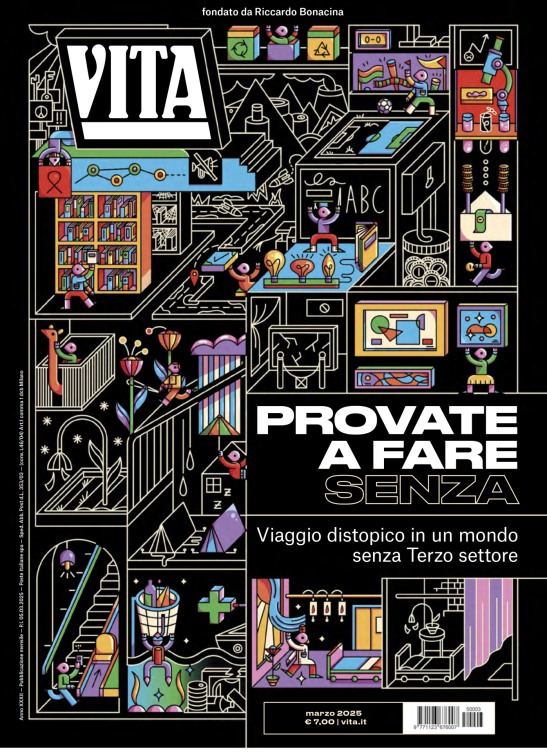Non profit
Stop gambling on hunger
The city of Milan says no to food speculation
The city of Milan will not speculate on food. On the eve of the run off of the local elections in the city that will hold the 2015 Expo, both candidates for mayor, Giuliano Pisapia and Letizia Moratti, have subscribed their names to the campaign “Stop gambling on hunger” and to the ethical code that prevents the city administration from investing in speculative food stocks.
“Stop gambling on hunger” (in Italian “Sulla Fame non si specula”) is a joint advocacy campaign between Vita (Afronline’s publisher), Action Aid International, Pime Institute, Acli (Association of Italian christian workers), Oneworld, and others Italian NGOs, which has been launched in Italy on Friday April 15. The aim is to call for more regulations to prevent the speculation on food.
Since June 2010, the prices of corn and wheat have doubled, again. At the same time, commodity markets – from Chicago to Singapore – have seen primary resources and food derivatives increase by 10-20% compared to the previous year.
The same thing had already happened between 2007 and 2008: the price of some cereals doubled and in some cases quadrupled. Then, in less than sixty days they fell to their original values. This had grave consequences for the poorer countries where wheat and corn are the staple food. In these first few months of 2011, food prices have again soared, this time higher than ever before.
The relationship between financial speculation and increase in prices is a complex one, what is certain is that speculation increases the existing inequities between supply and demand caused by other factors. Nonetheless, established research proves that financial speculation on food multiplies the effect of said inequalities.
Market rules created so as to increase the efficiency of exchanges between producers, consumers and intermediary businesses are falsified by these new players who have no actual interest in buying or selling wheat, corn, soya beans or rice but who are solely after the maximum returns in the shortest time.
For these reasons, the campaign “Sulla fame non si specula” is calling for regulations, which safeguard food markets from speculation.
The European Commission itself seems to be intent on promoting similar actions. “Food speculation is scandalous. There are millions of people dying of hunger in the world today,” declared Michel Barnier, the Commissioner for Internal Markets, “we must ensure that markets contribute to sustainable growth”. In the USA, the Commodity Futures Trading Commission, a watchdog for this sector focused mainly on the Chicago Mercantile Exchange, has proposed a similar set of rules.
In Milan, the heart of Italy’s financial market and the host of the 2015 Expo, which has the ambitious theme of “Nourishing the planet, energy for life”, the Italian campaign “Sulla fame non si specula” seeks to add its voice to these efforts. An appeal has been launched to the men and women running in the upcoming mayoral elections: the Mayor who will lead Milan during the 2015 Expo, is being called on to take a concrete step in the right direction by adhering to their campaign. More than this, they are being asked to agree to a code of conduct that will not allow the local government to invest in derivatives, which speculate on food prices.
On the eve of the run off of the local elections both candidates for mayor have accepted the ethical code that prevents the city administration from investing in speculative food stocks
Food is not something you can gamble on: this is the important ethical message coming from Milan, which is an important stock market where agricultural raw material shares are exchanged everyday, and which is the venue of the 2015 Expo on food.
This is only the first step. The campaign will go on and will relate to other similar initiatives in Europe and in the United States calling for regulations which safeguard food markets from speculation.
17 centesimi al giorno sono troppi?
Poco più di un euro a settimana, un caffè al bar o forse meno. 60 euro l’anno per tutti i contenuti di VITA, gli articoli online senza pubblicità, i magazine, le newsletter, i podcast, le infografiche e i libri digitali. Ma soprattutto per aiutarci a raccontare il sociale con sempre maggiore forza e incisività.
